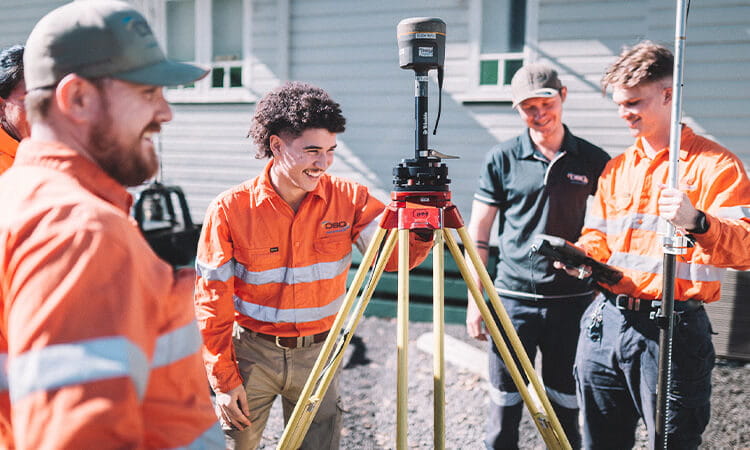What does a surveyor do?
You might be wondering ‘What does a surveyor do?’, surveyors bring fundamental knowledge to projects involving environmental assessments, land development, construction, real estate deals, and mining. As a surveyor you would create maps and provide information about land and infrastructure. To be able to map land, water or airspace you would likely use GPS equipment to measure distance, angles and elevations. If you go into this industry it’s likely you will work across a broad range of projects, however some choose to specialise solely as a Building surveyor or land surveyors.
In this profession you could work for a consultancy, the government, land developers, mining companies or construction organisations.
Is a career as a surveyor right for me?
If you’re methodical and have and interest in mathematics you might enjoy a career in surveying. Other skills and attributes beneficial for this role include:
- good problem-solving skills
- an interest in technology
- high attention to detail
- the ability to record data accurately
- the capacity to work independently or as part of a team.
How to become a surveyor
If you are considering a surveyor career path, there are various ways to get there.
A formal education, including a bachelors degree or postgraduate degree in surveying, geomatics or a related field is a good place to start. You will also need an approved registration to work as a cadastral or licensed surveyor in your state or territory to secure a job in this field.
Every journey to study is individual and there are several ways to reaching your career as a surveyor. At UniSQ, we offer the following degrees in the area of surveying:
Source: yourcareer.gov.au
© Commonwealth of Australia
Last updated May 2024.

The average surveyor job description includes duties and responsibilities such as:
- Undertaking research and development of surveying and photogrammetric measurement systems, cadastral systems and land information systems.
- Planning and designing land subdivision projects and negotiating details with local governments and other authorities.
- Advising architects, engineering professionals, environmental scientists and other relevant professionals on the technical surveying requirements needed for a project.
- Compiling and evaluating data, interpreting codes of practice and writing reports concerning survey measurement, land use, and tenure.
- Preparing site plans and survey reports required for conveyance and land ownership matters.